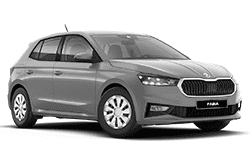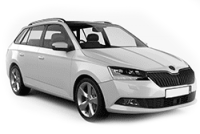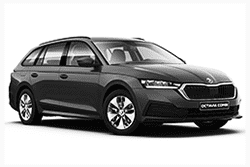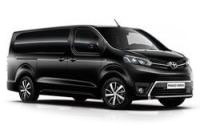This section provides only brief answers to general questions. If there is no answer to your question in the list below please check thematic sections on the website in the top navigation menu. There you can find more information about the insurance, parking, paid highways, fines and other extra information in Clients Zone. The rest of the frequently asked questions can be found below.
- Can I travel outside of Austria?
- Which Bank cards are suitable for payment?
- Is it possible to leave a Deposit in cash?
- How many time takes the Deposit unblocking?
- Is it possible to rent a car without a Deposit?
- What is the process of picking up a car?
- What is the process of returning a car?
- What insurance is included into the price?
- What should I do in case of an accident?
- What should I do in case of vandalism?
- What should I do if I receive a fine?
- What actions will be taken in case of a car breakdown?
- How and where to pay for toll roads?
- Where is it possible to park in Vienna?
- Where is it possible to park?
Can I travel outside of Austria?
You can travel to neighboring EU countries on our cars for free. There are restrictions on visiting certain areas of France, Spain, Poland (for these countries the need for additional payments is decided individually in the process of correspondence with the Client). It is forbidden to drive a car to the Scandinavian countries and the Baltic States. It is also forbidden to transport a rented car on ferries. Leaving the territory of EU on a rented car is prohibited. The only exception is Switzerland (for free) and Montenegro (for a surcharge, upon prior agreement). Entry into the territory of Romania and Bulgaria is also prohibited.
For accurate and timely calculation of the rental price we ask the Clients to indicate all the countries which they plan to visit when filling in the car reservation form. To be able to travel by car to other countries, all of them must be entered in the lease contract.
Which Bank cards are suitable for payment?
Both credit and debit cards VISA or MasterCard with a sufficient amount of money in the account are suitable. If you have a different type of card, you can pay for car rental in cash.
Is it possible to leave a Deposit in cash?
If the client pays for the car rental in cash, there is an option to choose whether to pay the Deposit in cash or block it on the card. If the car rental is paid by card, then the Deposit is blocked on the card.
How much time takes the Deposit unblocking?
We unblock funds on the client's credit or debit card within two days after the car is returned, most often on the same or the next day. In the procedure of unblocking funds there are two participants: our Bank (unblocking takes place on the next business day after the command is made), and the client's Bank, where unblocking period may vary from one day up to several weeks. In case of such long delays, at the request of the client, we can send by e-mail scans confirming both operations – blocking and unblocking of the Deposit. In most cases, it is enough to present these scans at the client's Bank to speed up the unblocking process.
Is it possible to rent a car without a deposit?
First, you need to clearly understand two terms - "insurance deductible" and "deposit". The insurance deductible is the amount of the client's liability in case of damage to the rented car. A deposit is an amount that is greater than or equal to the deductible. In case of damage to the car due to the fault of Client an amount less than or equal to the deductible is withheld from the deposit. Besides car damage, there are also other risks that the deposit covers. For example, loss of documents or keys, lack of fuel, car return to a different location, etc.
Renting a car without a deductible is possible if you take out full insurance with a zero deductible for a small surcharge. To get this service, when booking a car, you just need to choose a rental option with a zero deductible (after choosing a car – in the additional options section). In this case, if the car is damaged, funds will not be withheld from the deposit, because the insurance deductible will be zero. However, even if you pay for insurance with a zero deductible, you must leave a deposit, because there are other risks, such as the loss of documents or keys, car return with an incomplete tank or elsewhere, etc.
What is the process of picking up a car?
We deliver the cars to any place in Vienna for free (except for areas that are too far from the center). If you want to pick-up a car at the airport, our employee will meet you in the arrival hall (with a tablet with your name and surname). You will not have to wait in line, which is especially important now, during the COVID-19 pandemic. Together with our employee, you will immediately go to the car, check it, complete all the necessary documents, make the payment and you can hit the road. Delivery is also possible to railway stations, to the hotel/apartment, or to any address previously arranged with our manager.
What is the process of returning a car?
The place of return of the rented car is chosen by the client. Several options are offered as locations where the return is free. This includes the airport, train stations, and our Parking lot at Zippererstraße 16. A return at any other place in Vienna (with the exception of areas that are too far from the center) requires an extra charge of 20 Eur. When you arrive at the previously arranged place of return by the appointed time, our employee will meet you. He will make a visual checkup of the car and arrange a return certificate. The entire procedure usually takes no more than 5 minutes.
What insurance is included into the price?
In addition to the mandatory Liability car insurance, the rental price of our cars, unlike most other Austrian rentals, already includes Super Collision Damage Waiver with an excess of only 300 Eur (for cars) and 500 Eur (for minibuses), Windshield insurance with a zero excess, Comprehensive car insurance with an excess of 300 Eur (500 Eur for minibuses).
The interior of the car and tire are not included into the insurance. For a small extra payment you can order an additional insurance with a zero excess. For more information about the insurance click here - Insurance.
What should I do in case of an accident?
- Stop the vehicle immediately and secure an accident place.
- If someone is injured or you need other emergency assistance (fire brigade, ambulance or police) call to the general emergency number 112.
- In case of the accident in Austria call the police directly 133 or 112 if:
- in case of the accident the injury or death of one of participants of road accident took place;
- damage to any of the vehicles (including property) exceeds 4,000 Eur;
- one of the participants refuses to draw up or sign an accident registration form;
- damage was caused to the property of a third party who was not involved in the accident (for example, a parked car, a lamppost, a fence, etc.).
- Report the incident to our Manager using any voice calls that is convenient for you (phone, WhatsApp, Viber). Our Manager will tell you what to do in this situation and answer your questions.
- If there is no need to call the police, it is recommended to take photos of the accident place from different angles, as well as of damage to all parties involved. Fill in the accident registration form.
What should I do in case of vandalism?
There are some situations when the damage is clearly intentional, such as scratching the car with a sharp object or breaking the windows in order to steal things left inside the car. In such cases, THE POLICE MUST BE CALLED and it must be done immediately when these damages are discovered since this is a mandatory requirement of the insurance company to pay for the damage. This is the lessee's responsibility and if this requirement is not met, the ENTIRE responsibility for damages falls on the lessee, and this can cost much more than the cost of the Deposit! Therefore, be attentive and quickly check the car every time you pick it up from the Parking lot. If a similar situation occurs, please contact our Manager using any voice communication that is convenient for you. Our Manager will analyze your specific situation and recommend the best solution possible in your case.
What should I do if I receive a fine?
If you received a fine, it is better to pay it on the spot, in the same country where you received it. The easiest way to do this is at the post office. Paying a fine from another country, even within the EU, is usually more expensive. Since 1.01.2017, fines for violations detected by high-speed radars have been sent between EU countries, so be careful, because the sum of fines is quite large, especially in Italy, Switzerland and Hungary. Under European law, such fines must be paid by the driver who committed the violation, and the owner of the vehicle must provide the data of the driver who committed the violation. Therefore, if we receive a fine, we contact the clients and send them a scan of the fine. If there is no communication with the client or if there is no payment of the fine within the established time frame, we send the client's data to the police. Read more about fines here - About fines.
What actions will be taken in case of a car breakdown?
All our cars are under manufacturer warranty, regularly undergo maintenance service and diagnostics, so cases of malfunction are almost impossible. If something goes wrong, the first step is to call our 24/7 support service and follow our Manager's instructions. Due to the huge variety of possible situations, our support Manager's instructions alone take about 9 pages. Therefore, we will state very briefly the sequence of measures that you need to take in case of a serious breakdown.
- The Car is delivered to the nearest service station on its own or on a tow truck.
- The service’s employee performs diagnostics and informs how fast can fix the problem.
- If the terms are acceptable, the car is repaired and returned to the client in a repaired condition.
- If it is not possible to repair the car in short time, we will replace the car.
Obviously, all costs in such cases are paid by us. Each case is different and we solve the problem in the shortest possible time in the most acceptable way for the client, with subsequent compensation for inconvenience.
In addition to Vienna, we have branches in cities such as Prague, Budapest and Munich, so in these cities car replacement is solved especially quickly.
How and where to pay for toll roads?
In most of EU countries highways may be travelled over only after paying a toll (there are also regular free roads). If you are going to use toll roads of other countries, you will need to pay it yourself in advance before entering them. The Austrian highways for our cars are already paid for (it doesn't cover 6 toll sections, paid additionally before entering). In Austria a vignette can be attached to the windshield or it can be an electronic one. In the Czech Republic, Slovakia and Hungary electronic ones are used, you don’t need to put a sticker on the windshield there. But in Slovenia and Switzerland it must be done, because viniettes are sold only in form of a sticker, there are no electronic versions yet. You can buy a vignette at the border, but it is better to buy it beforehand near the border, at any border gas station. In Croatia and Italy the payment is made on the spot. Before the barrier you need to take a special ticket from the machine (as in Parking). At exit the highway, use the ticket to pay for the road section you have passed. Fines for driving on highways without payment are huge, usually more than 200 Eur. Check for more information about paid highways - Toll roads in EU.
Where is it possible to park in Vienna?
It’s possible to park a car wherever it is not prohibited by traffic signs. Vienna is divided into districts and a car can be parked only with a prepaid parking voucher (parkschein) according to the short-term parking rules of a certain district. You can read about parking and parkschein here. It’s also possible to park a car in any paid parking without a parkschein.
Do I need anti-skid chains in the mountains?
If you are going to popular resorts, in an area where there is a tourist ski infrastructure, it is extremely unlikely that you will need anti-skid chains. In such areas, roads are regularly cleaned and sprinkled with thawing agents, and snow removal equipment is able to work non-stop even in the most adverse weather conditions. Chains in winter may only be needed in hardly accessible high-altitude areas. By the way, the use of chains in Austria is allowed only on road sections marked with the corresponding sign.











